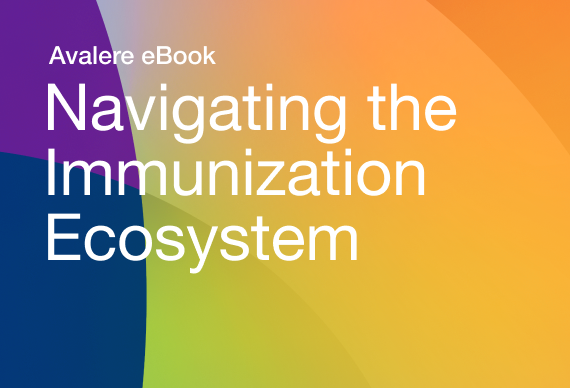Several Changes to Adult Vaccine Access Enacted Through IRA
Summary
The IRA will expand adult vaccine access by mandating coverage without cost sharing for all adult vaccines in Medicare Part D and Medicaid.On Tuesday, August 16, President Biden signed the Inflation Reduction Act (IRA) into law. The legislation includes a variety of healthcare reforms, several of which will significantly alter the US adult vaccine landscape.
Until passage of this legislation, adult vaccine coverage has been fragmented across payer types. The Affordable Care Act and its implementing regulations mandate coverage without cost sharing of all vaccines recommended by the Advisory Committee on Immunization Practices (ACIP) for Medicaid expansion beneficiaries and patients enrolled in non-grandfathered commercial health plans. These requirements do not apply to the traditional Medicaid population, and as a result adult vaccine coverage is left to states’ discretion and varies from state-to-state.
In Medicare, vaccine coverage is split between Part B (pneumococcal, influenza, COVID-19, and, under certain circumstances, hepatitis B vaccines) and Part D (all other adult vaccines, including shingles and Tdap). While there is no cost sharing for Part B-covered vaccines, Part D plans (including prescription drug plans and Medicare Advantage prescription drug plans) may impose cost sharing for those covered under Part D. Uninsured adults in some states may receive vaccines through public programs, though funding and access varies by state.
The IRA seeks to expand access to adult vaccines through 2 policy changes:
- Eliminating Vaccine Cost Sharing in Medicare Part D: Starting January 1, 2023, all Medicare Part D plans will be required to cover all ACIP-recommended adult vaccines with no cost sharing, even if the beneficiary is in the deductible phase of the benefit. As a result, 49.9 million Part D-enrolled beneficiaries will now have access to ACIP-recommended Part D vaccines without cost sharing.
- Mandating Medicaid Coverage of Adult Vaccines: Starting October 1, 2023, all state Medicaid programs will be required to cover all ACIP-recommended adult vaccines and their administration without cost sharing. As a result, 23.8 million adults enrolled in the traditional Medicaid program—where vaccine coverage currently varies by state—will have access to all recommended adult vaccines without cost sharing. This new policy will align coverage for traditional Medicaid with that of the expansion population for whom vaccine coverage is already mandated.
Stakeholder Implications
These policies will address long-standing gaps in the adult vaccine coverage landscape by extending coverage without cost sharing to all Medicaid and Medicare beneficiaries. As a result, nearly all US adults will be able to access ACIP-recommended vaccines with no out-of-pocket costs, which evidence suggests could lead to increased uptake. However, other barriers to access will remain, specifically for uninsured adults who lack access through other programs and for roughly 11% of Medicare enrollees who are not enrolled in Part D or other prescription drug coverage.
These new policy changes could increase vaccine manufacturer utilization in the Medicare and Medicaid markets. However, manufacturers should also be aware of other provisions in the IRA that could impact product pricing. Specifically, some vaccines could be eligible for Medicare negotiation in the future, and manufacturers may be subject to penalties if their Part D vaccine prices rise faster than inflation. Vaccines covered under Part B are explicitly excluded from a similar penalty.
For providers, these changes may reduce administrative burden associated with determining whether a vaccine is covered for Medicaid or Medicare beneficiaries. However, the IRA does not modify provider payment rates, which are often cited as inadequate—particularly in the Medicaid program—and may limit some providers from stocking and administering vaccines.
For health plans and state Medicaid programs, these new coverage requirements could increase spending, though notably the IRA aims to offset Part D spending increases by providing plans with a temporary subsidy to cover the expenditures associated with cost sharing reductions in the first year. Payers must review their formularies and ensure coverage of all ACIP-recommended adult vaccines at no cost to beneficiaries. State Medicaid programs—which have an additional year to implement the policy—need to identify current vaccine coverage gaps across both fee-for-service and Medicaid managed care programs and update their fee schedules and billing manuals accordingly.
Looking Ahead
Now that Congress has addressed these gaps in Medicaid and Medicare coverage, state and federal policymakers may turn their attention to other issues affecting adult vaccine access, such as:
- Recovering declines in routine vaccine administration rates from the COVID-19 pandemic
- Creating federal standards for provider reimbursement rates for both products and their administration
- Ensuring coverage and reimbursement parity across provider and benefit types (e.g., pharmacists)
- Increasing funding for vaccine infrastructure and safety-net programs (e.g., Section 317)
- Reducing vaccine hesitancy
- Enhancing data collection through immunization information systems
- Expanding quality measurement programs to include the Adult Immunization Status composite measure
How Avalere Can Help
Avalere’s Vaccines Team is well-positioned to help assess the impact of the IRA’s changes on multiple stakeholders, including manufacturers, payers, providers, and patients. Additionally, Avalere can support clients in assessing remaining gaps in vaccine access across markets and identifying key policies to further improve patient uptake.
For more information on how Avalere can support you in advancing your vaccine policy priorities, connect with us.






